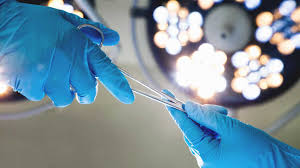prostatitis is a disease that plagues many males over the years and patients suffer a lot because of it. People seek a variety of treatments in the hope of curing it and not suffering from it anymore. It is roughly estimated that more than 80% of patients with prostatitis have experienced secondary treatment.
Speaking of this, some prostatitis patients, especially those with chronic prostatitis may have a question: why is prostatitis so difficult to treat? Why can not it be cured at one time? Today we are here to introduces the advantages and disadvantages of several common treatment methods for prostatitis.
1. Chemical medicine
Antibiotics are often used in the treatment of chronic prostatitis in chemical medicine. It is convenient to take and effectively diminish the inflammation, but its disadvantages are that it is difficult to reach the hospital. It can not produce an effective therapeutic concentration in the prostatic gland, thus affecting the curative effect. If the dosage is increased, the side effects of chemical medicine will be great, and it is easy to cause damage to the liver and kidney and other important organs.

Oral antibiotics are difficult to reach the lesion, which is determined by the structure of the prostate. Although the prostate gland is a small organ, it is very important for men, so the organism also increased its protection to the prostate. There is a fibrous envelope around the prostate, which is so flexible and dense that it is called the prostate barrier.
Experts through animal experiments believe that penicillin G, ampicillin, kanamycin, oxytetracycline, and other antibiotics can hardly enter the prostate. Only a few antibiotics, such as erythromycin, bamboo neomycin, chloramphenicol, and lincomycin, can diffuse into the prostate by plasma. These drugs are effective against Gram-positive bacteria, but most of the pathogens of prostatitis are Gram-negative bacteria, so the efficacy of these drugs is not good.
Although chloramphenicol and tetracycline can penetrate into the prostate, they are effective only when they are extremely sensitive to bacteria, thus increasing the difficulty of treatment.
2. Surgery
The main surgical treatments of benign prostatic hyperplasia are to remove the glandular hyperplasia part to relieve urinary tract obstruction. Surgical treatment is suitable for patients with benign prostatic hyperplasia of stage II or above.
The clinical-stage is determined by the severity of the symptoms.
Stage I: It is usually manifested as dysuria, polyuria, weak urine flow, compensatory hypertrophy of detrusor muscle of bladder, but no retention of urine.
Stage II: bladder begins to decompensate, urinary retention occurs, and bacterial cystitis often occurs.

Stage III: the bladder is decompensated for a long time, urinary retention is serious, and renal insufficiency occurs.
Conservative treatment is ineffective when the prostate enlarges to stage III or reaches stage III. chemical medicine advocates prompt operation in the early stage. The advantage of operation is to resect the prostate hyperplasia, relieve urinary tract obstruction and achieve quick results.
However, the disadvantage is that there are many complications, some of which have serious consequences. In addition, they can recur after an operation. At the same time, the pain of operation is also a concern for many elderly patients, so it is difficult for patients to accept.
Common complications are:
1) Urinary tract infection
2) Secondary epididymitis, seminal vesicle inflammation and prostatitis
3) Urinary fistula Secondary to incision infection and lower urinary tract obstruction.
4) Dysuria caused by improper operation, rough operation and infection, urethral stricture and bladder neck stricture was caused.
5) Urinary incontinence caused by the Surgical injury of the external urethral sphincter of smooth muscle around the prostate of the bladder neck.
6) urethrorectal fistula due to the Injury of the rectal wall during operation.
7) Sexual dysfunction
No matter what kind of operation is adopted, the penile erectile nerve can be damaged and controlled to varying degrees, resulting in impotence.
3. Natural Medicine
Traditional Chinese medicine mainly treats prostatitis and benign prostatic hyperplasia according to syndrome differentiation. People can be treated with oral natural medicine combined with herbal fumigation, local administration of rectum and urethra, massage, acupuncture and so on.
Compared with chemical medicine, traditional Chinese medicine has obvious advantages in the treatment of prostatic diseases.

Traditional Chinese medicine treatment of prostatitis are diverse, all kinds of therapies are safe and reliable, non-toxic, harmless with no side effects, such as oral natural medicine Diuretic and Anti-inflammatory Pill, which is easy to take, it has a good effect of clearing heat and detoxification, promoting blood circulation, promoting qi and relieving pain, and bactericidal and anti-inflammatory effect as broad-spectrum antibiotics of chemical medicine.
Diuretic and Anti-inflammatory Pill can fundamentally cure prostatitis, meanwhile, it can also enhance the immunity of patients. Although both chemical and traditional Chinese medicine have their own advantages, overall, the unique disadvantages of traditional Chinese medicine are more acceptable to male prostatitis patients.

